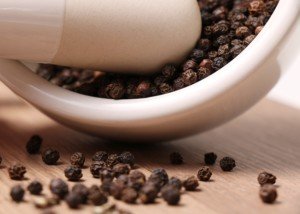
Have you ever been awakened by a sudden burping up of yucky tasting liquid that even may have dripped out of your mouth?
This is acid reflux that comes from the stomach.
It can be refluxed up as high as into the throat and into the mouth, making you “burp.”
It tastes kind of like what typical vomitus smells like.
Why do some people burp up acid reflux while asleep in the first place?
“Acid reflux symptoms can be exacerbated when lying down,” says Dr. Neil Sengupta, MD, a general gastroenterologist and assistant professor at the University of Chicago, and GI Research Foundation Scholars Award Recipient.
“This is because it easier for stomach contents to reflux into the esophagus through the sphincter connecting the stomach and the esophagus when someone is lying down,” continues Dr. Sengupta.
“This occurs due to gravity. For this reason, for patients having acid reflux symptoms, we recommend staying upright after eating, and avoiding reclining for a few hours after eating the last meal of the day.
“In addition, elevation of the head of bed helps acid reflux symptoms by reducing gravity based reflux from the stomach into the esophagus.”
How to Properly Elevate the Bed to Prevent Burping up Acid Reflux
Only elevating your head will not work. Putting an extra pillow or even two beneath your head, so that your neck is more flexed, will have no effect on acidic stomach “juices” spurting up the esophagus while you’re asleep and getting into your mouth.
You’ll need to elevate your torso. This can be done with a special wedge pillow, or by propping the head end of the bed up by about 10 inches.

For some people, 10 inches may not be enough, but 15 inches should solve the problem if the acid reflux is being generated by gravity.
There are other causes of acid reflux while asleep, mainly, a weak sphincter that just isn’t as good at containing the stomach’s juices as it used to be.
Eating close to bedtime will make the situation worse.
If — after taking measures to stop burping up that yucky tasting acid reflux while you’re asleep or even awake in bed — the problem persists, then see your doctor about additional measures you can take, such as avoiding foods known to trigger reflux such as citrus fruits, alcohol and caffeinated drinks.
 Dr. Sengupta’s research interests involve optimizing the care and outcomes of patients hospitalized with gastrointestinal bleeding. Specific interests include GERD, colon cancer screening and fatty liver disease.
Dr. Sengupta’s research interests involve optimizing the care and outcomes of patients hospitalized with gastrointestinal bleeding. Specific interests include GERD, colon cancer screening and fatty liver disease.
 Lorra Garrick has been covering medical, fitness and cybersecurity topics for many years, having written thousands of articles for print magazines and websites, including as a ghostwriter. She’s also a former ACE-certified personal trainer.
Lorra Garrick has been covering medical, fitness and cybersecurity topics for many years, having written thousands of articles for print magazines and websites, including as a ghostwriter. She’s also a former ACE-certified personal trainer.
.









































